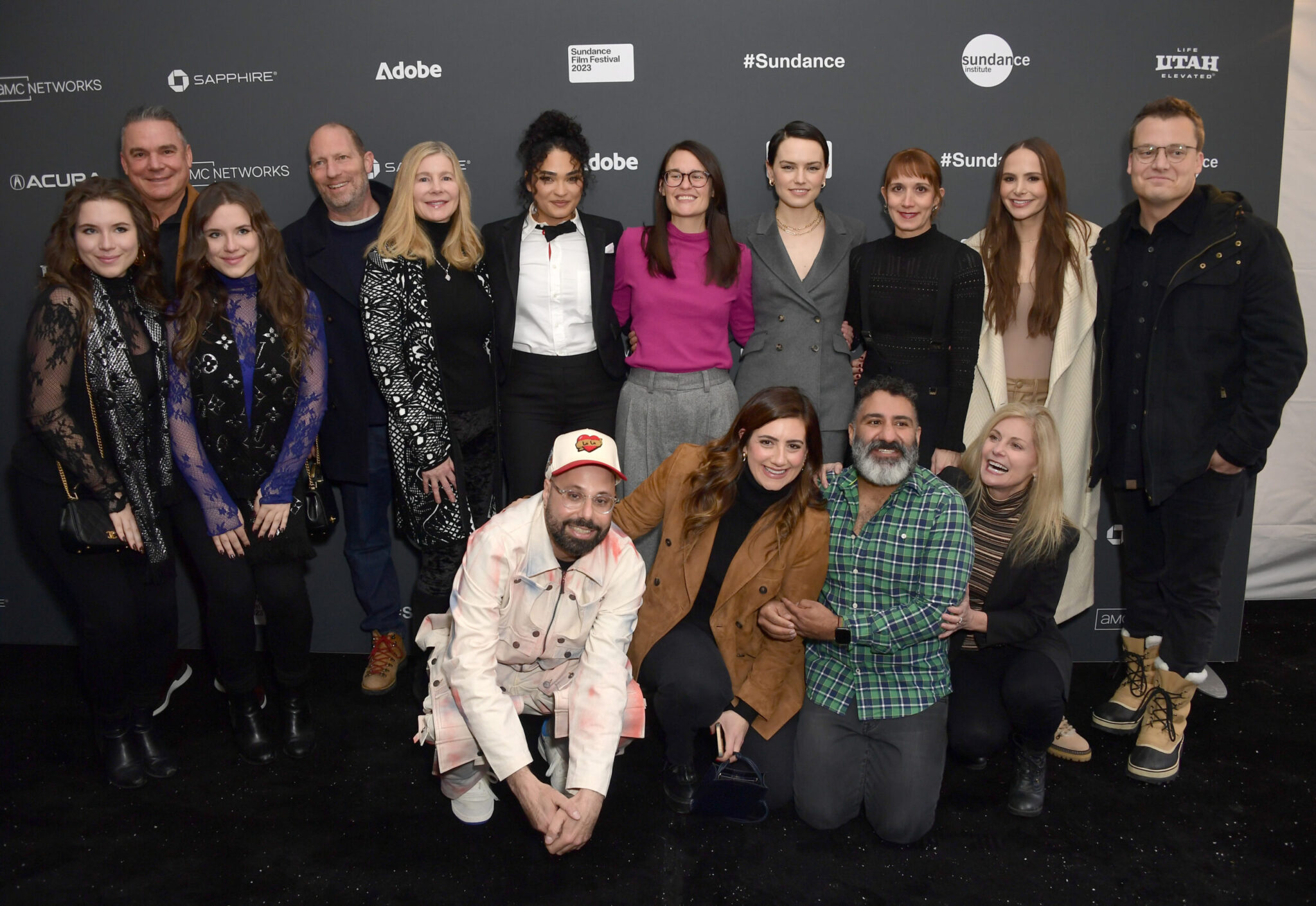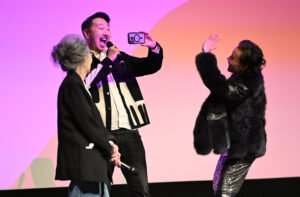By Stephanie Ornelas
Sometimes, it’s okay to not be okay.
Sometimes I Think About Dying premiered at the 2023 Sundance Film Festival at Library Center Theatre in Park City last night, and delighted audience members were ready with burning questions about everything from director Rachel Lambert’s choice of music to the lighting techniques, and even the film team’s personal experiences surrounding mental health. Whatever the attribute (and there were many the audience enjoyed), this offbeat crowd-pleaser may have the following side effects: laughter, tears, and an urge to contemplate how you spend your days, minutes, and hours alone in your head.
Daisy Ridley plays main character Fran, a quirky introvert who lives a quiet life near the gloomy Oregon Coast. Holed up in a cubicle all day, she ignores co-workers and spends her free time imagining the different ways she could pass away, like her body dangling from the crane at her office, or laying dead in an eerie forest. Though it doesn’t necessarily seem like she wants to take her life — her daydreams are merely ways to keep her mind active — it’s certainly clear she prefers to live in isolation. She can’t relate to her colleagues and she doesn’t have friends or family she can connect with. But that’s all about to change when a new employee joins the office.
“The film was touching on things that I think I feel all the time, which is the desire to connect and struggling to figure out how to do that,” says director Rachel Lambert at the live post-premiere Q&A in Park City.
She notes that, in the past, she’s struggled with comparing herself to others, “and feeling so tied up in my own mind in terms of convincing myself that there’s absolutely no place in this world for me. ‘Everyone else is so successful, why am I failing at this? How do I do it?’ I think this film captured that in this way that was not only authentic, but rendered a way forward that also felt equally as authentic.”
Lambert explains how important it is that the film doesn’t feel patronizing. “It felt earned. Because it’s sort of celebrating the minutia of being alive — the things we touch, the people we see, the things we eat, the things that we stand and wait to brew. And it sort of bathed in that. Fran found her salvation in ultimately merging that place in her head and the world around her.”
Through unique lighting — it seemingly gets brighter throughout the film as Fran opens up — and a charming film score, the movie takes a poetic look at how we, as humans, struggle to connect, and how sometimes, one connection is all we need.
Sometimes’ central connection is also a sweet and hilarious romance, set in the daily office-life humdrum that many of us can relate to. When Fran meets Robert, the new employee at the office, she’s thrust out of her bubble of isolation and reluctantly starts getting to know him. New to town and the dynamics of office life, Robert is a naturally bubbly person who’s intrigued by Fran.
Ridley’s quiet yet powerful performance as Fran deeply affected members of the audience, many of whom could easily relate to the character’s social struggles. One Festivalgoer even asked the panel, “I’m curious if any of you have been through an experience like Fran, because I have.”
Discussing the evolution of her character, Ridley explained, “I think we all know what it is like to feel what Rachel said earlier. Sometimes I feel like a piece of fucking shit, and sometimes I feel great. And what was interesting with Fran was that sometimes she was sort of obnoxious. Sometimes she’s like, ‘I don’t want to play your games. I don’t want to talk about food. I’m good, I’m apart from this.’ And other times, she’s like, ‘How do I become part of this?’ So I resonated with that.”
One of the most interesting aspects about the film is the cinematography. It consisted of completely static shots that made the movie that much more human and made viewers feel as though they were actually watching Fran’s life play out — all the way up to its emotionally charged ending.







